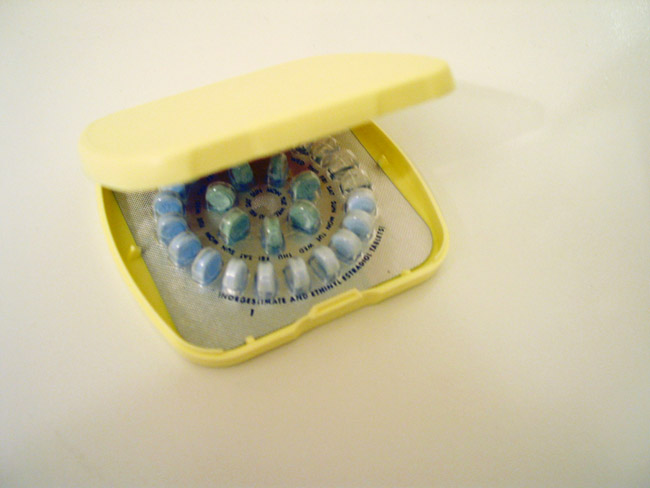In 50 Years, the Pill Has Come a Long Way

When the FDA first approved the birth control pill on June 23, 1960, there was only one option for the more than a million interested women. Named Enovid, the Pill was originally blunt and overbearing, delivering high doses of hormones to prevent ovulation and thus pregnancy.
Within two years, reports of blood clots were accumulating at the doorstep of Enovid's manufacturer Searle. By 1966, public concern over blood clots, diabetes and cancer prompted the FDA to open the doors to lower dose versions of the Pill.
Now, 50 years later, birth control pills deliver hormones at doses one-fifth to one-tenth of what they were originally, said ob-gyn and professor Dr. Janice Aubey of Columbia Medical Center in New York. "They are an incredibly safe and highly effective method of contraception," Aubey said.
Today's Pill comes in a variety of hormone dose combos, allowing women to tailor their birth control options to their individual health risks and lifestyles, with some varieties offering a seasonal period or none at all. [7 surprising facts about the Pill]
Oops! Mistake made a better Pill
The use of two hormones in the Pill was a fortuitous mistake.
During an early clinical trial in the 1950s, the original progesterone-only pill was accidentally contaminated with synthetic estrogen. There was a marked decrease in problems such as breakthrough bleeding (which occurs during "other" times in the month) among study participants, and estrogen joined Team Birth Control permanently.
Get the world’s most fascinating discoveries delivered straight to your inbox.
Today, the most commonly prescribed type of birth control pill continues to contain both estrogen and progesterone. So-called "combination pills" come in packs of 21 hormone-containing pills plus an optional week of placebo pills. There are three types: Monophasic gives the same amount of hormone over the three active weeks, while biphasic and triphasic vary the hormone doses.
There may be an advantage to the biphasic and triphasic pills, Aubey told LiveScience, because they expose a woman to less hormones overall. However, no difference has yet been found clinically.
Although today's Pill is kinder and gentler than it was 50 years ago, it still carries some health risks, such as high blood pressure, heart attack, stroke and blood clots. Some risks may be higher among smokers and those over 35 years old.
Extended cycle Pills
Chemically, extended cycle pills are much like the standard combination pill. They just have many more "active pills" ¾ that is, pills with actual hormones. The week of placebo pills, and thus one's period, comes seasonally (with brands such as Seasonale and Seasonique) or never (Lybrel). Surprise bleeding is more likely with extended cycle pills, but otherwise the effects and risks are similar to the monthly combo pill.
"There is no reason to have a period every month," Aubey said, explaining that this option is good for any woman who wants fewer periods. Extended cycle pills are particularly recommended to women who have painful periods, menstrual headaches or other health issues, such as anemia and endometriosis.
"There are quality of life advantages and, for some people, there are physical ones as well," Aubey said.
Mini Pill
The mini pill is not tiny; it just lacks estrogen. Less forgiving than the standard combo pill, it must be taken at exactly the same time everyday or its effectiveness at preventing pregnancy plummets.
The mini pill was designed for breastfeeding women as estrogen may hamper milk production ¾ although the research on this is inconclusive, Aubey said. Women who smoke, are over 35, who have high blood pressure or migraines with aura are also often commonly prescribed the mini pill.
While some health risks may be reduced with the mini pill, it carries many of the same side effects as the combo pill, including nausea, dizziness, headaches and reduced sex drive.
There is some evidence that progesterone-only pills (i.e. the mini pill) may worsen depression symptoms, although the research remains contradictory. Whether this could contribute to postpartum blues, is not yet known.
Overall, today's Pill, Aubey said, "is among the most studied and readily available forms of contraception." When taken correctly, it is not only safe but also reliably effective, experts say.
And it has, many would contend, improved the sex lives of millions of couples.
- 7 Surprising Facts about The Pill
- Why Isn't There a Male Birth Control?
- The History and Future of Birth Control
Robin Nixon is a former staff writer for Live Science. Robin graduated from Columbia University with a BA in Neuroscience and Behavior and pursued a PhD in Neural Science from New York University before shifting gears to travel and write. She worked in Indonesia, Cambodia, Jordan, Iraq and Sudan, for companies doing development work before returning to the U.S. and taking journalism classes at Harvard. She worked as a health and science journalist covering breakthroughs in neuroscience, medicine, and psychology for the lay public, and is the author of "Allergy-Free Kids; The Science-based Approach To Preventing Food Allergies," (Harper Collins, 2017). She will attend the Yale Writer’s Workshop in summer 2023.



